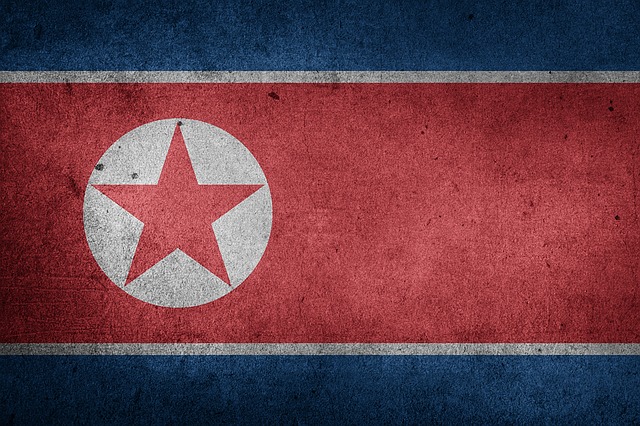By J.M. Phelps (One News Now)
While we are hopeful about the denuclearization of North Korea, are we as hopeful about preventing other forms of weapons of mass destruction from being developed?
In what appears to be a surprising turn of aggression to compliance, North Korean dictator Kim Jong-un is willing to begin negotiations with the President Donald Trump that would result in the proposed denuclearization of the country. As South Korea acknowledges there is talk of the suspension of nuclear and missile tests in the area, let us note this is the first time Kim Jong-un and his government is showing a willingness to completely remove the nuclear threat in an effort to improve the regime’s relationship with the United States.
False hope? Or a potential truce looming from the White House? Time will tell.
“Only under the right conditions” would President Trump begin negotiating with North Korea. Considering we are talking about a moratorium on nuclear and missile programs less than a year after that regime delivered a dying Otto Warmbier to our front doorstep in what I consider a mob-style show of force, I ask: Can we trust Kim Jong-un?
A month ago, an unpublished report by U.N. experts indicated North Korea has been supplying the Syrian government with chemical weapons for the last two years. It’s not surprising to see Syria’s interest in chemical weapons, as there have been countless reports these weapons (composed of chlorine gas or sarin gas) have been repeatedly used on their own people.
In response to the chemical weapon exchange between North Korea and Syria, Dr. Herb London of the London Center for Policy Research says, “What you have here is a very interesting development. You may recall when the war occurred in Iraq, there was a lot of discussion about weapons of mass destruction. There are so many Americans that believe Bush lied, and people died. You’ve heard that claim.”
London continues: “They were talking about nuclear weapons – but they overlooked the fact Syria was the recipient of so many of the chemical weapons that were delivered from Iraq. This occurred largely because they share a border with Syria and they thought the chemical weapons would be secure in the area.”
While the dismantling of the nuclear threat looms, will we simply ignore the black market sale of chemical weapons? “That is a very important dimension of this issue,” says London. “As far as the sale is concerned, it’s a sale that goes back and forth. The Syrians have some very sophisticated chemical weapons, and the North Koreans are developing chemical weapons.” While Bashar al-Assad and Kim Jong-un help one another finance nuclear weapons, ballistic-missile programs, and materials for the production of chemical weapons, we center our thoughts around the potential for negotiations about nuclear weapons.
It’s quite logical to conclude the North Koreans are developing chemical weapons for one obvious reason: a means to destroy human life. London confirms, “If, in fact, their nuclear facility is destroyed by an American attack – an unlikely scenario, but a plausible one – then it seems to me the North Koreans would rely on chemical weapons as their weapons of mass destruction.”
If the American people are going to believe in security, they need to see sanctions cease to be evaded. It’s one thing to impose a sanction, but it’s another thing to see them actually work as global threats to our country and its allies become more and more prevalent.
“I think it’s important to understand the background, the history, as well as the threat that now exists,” concludes London. “Obviously, the threat goes beyond Syria. This is largely because the North Koreans could use chemical weapons in any direction. Plus, chemical weapons are not the restraint that would exist if you would drop a bomb. You drop a tactical nuclear weapon and there is a restraint of area in a certain diameter. [But] in the case of chemical weapons, depending on the wind and a whole variety of conditions, it could virtually go on for hundreds of miles.”
While we are hopeful about the denuclearization of North Korea, are we as hopeful about preventing other forms of weapons of mass destruction from being developed?
The United States and its allies in the international community need more effective enforcement and accountability measures for sanctions that have proven to be overtly ineffective time and time again. Recovering from Obama’s idiotic policies dealing with rogue states and their insidious devices is a task the current administration must be diligent to diminish, leaving no stone unturned.
J.M. Phelps is a Christian activist and journalist based in the Southeastern U.S. He is also editor and publisher of the website Lantern of Liberty.
Originally published by One News Now on Monday, March 12, 2018.
This column is printed with permission. Opinions expressed in columns published by Lantern of Liberty are the sole responsibility of the article’s author(s), or of the person(s) or organization(s) quoted therein, and do not necessarily represent those of the staff or management of, or advertisers who support Lantern of Liberty.

